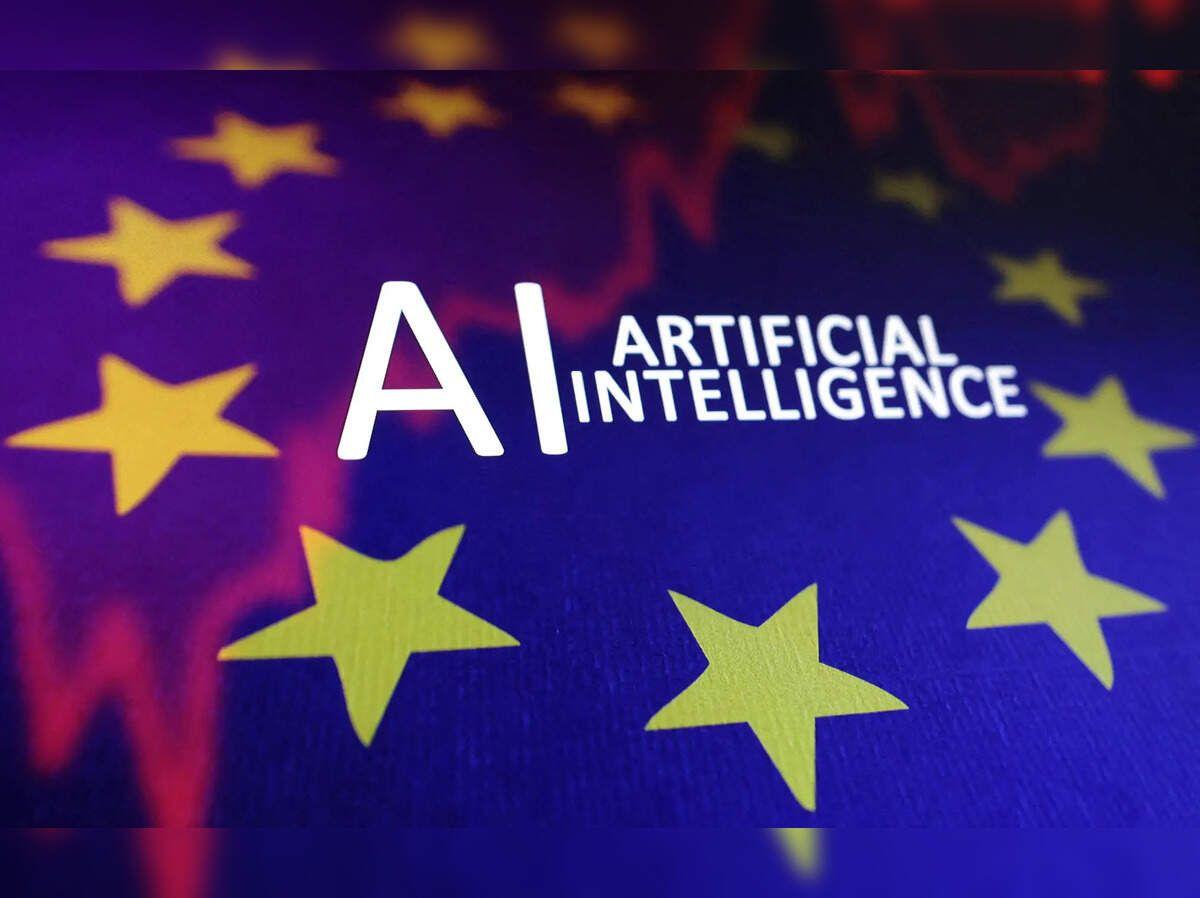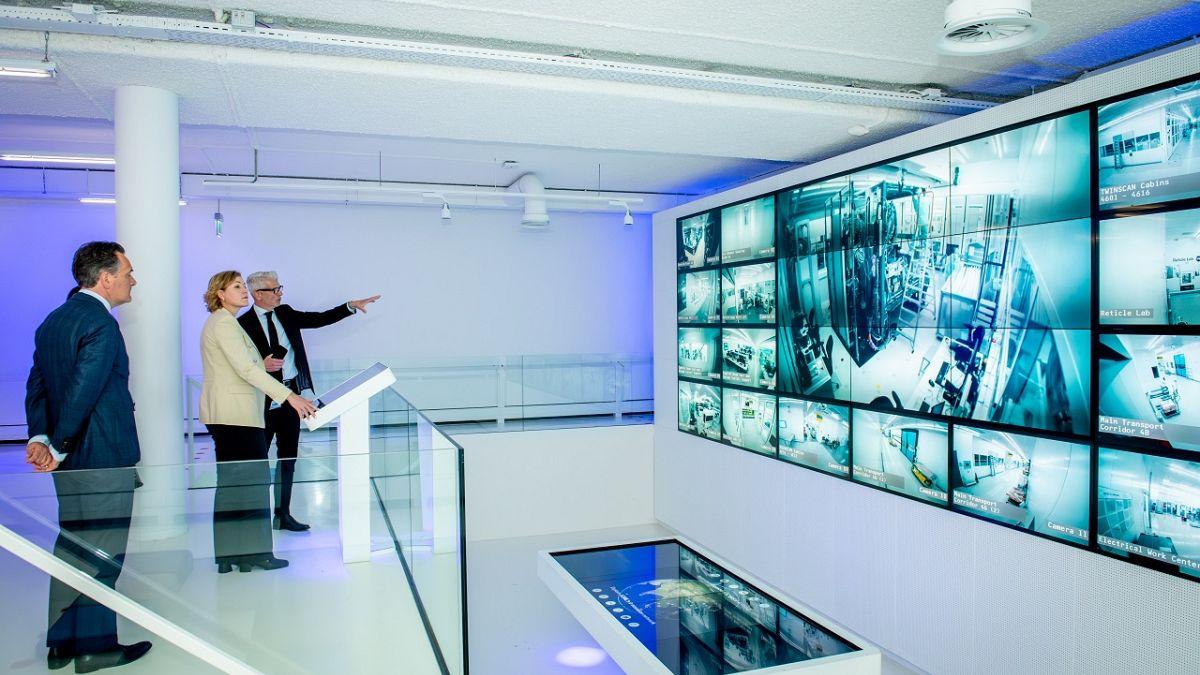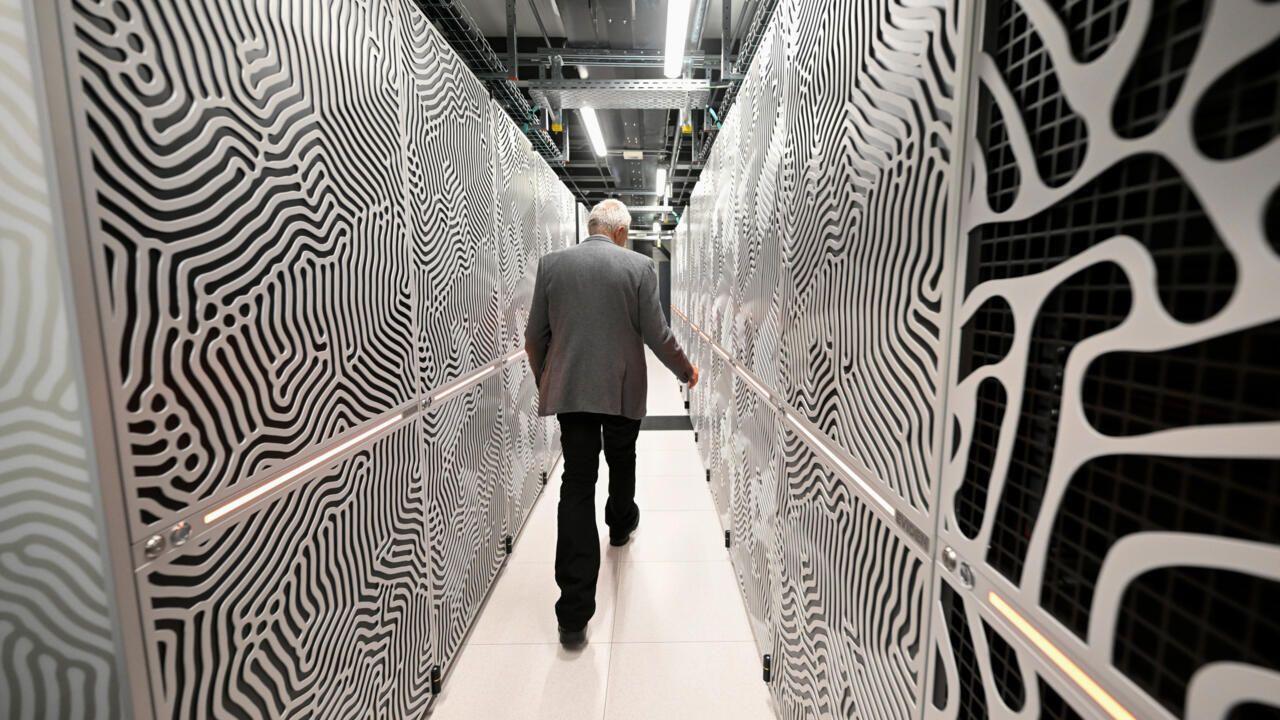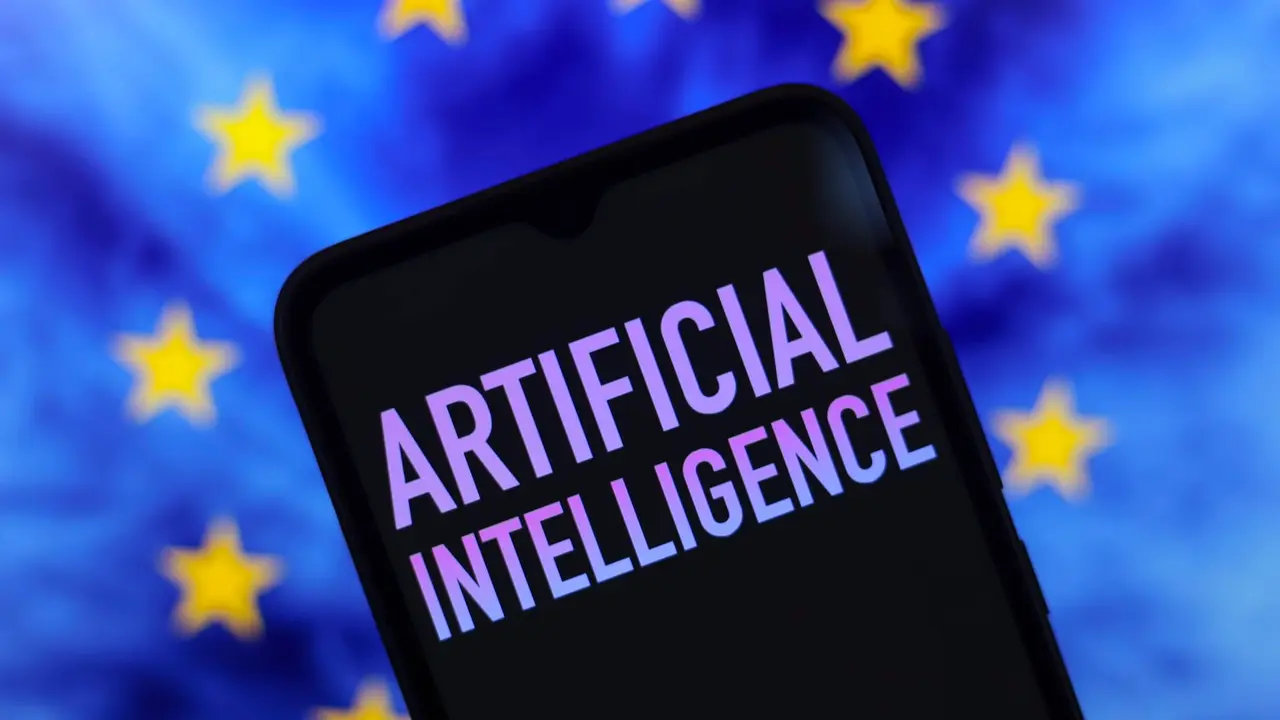EU Unveils €1 Billion Strategy to Boost AI Adoption and Reduce Foreign Dependence
9 Sources
9 Sources
[1]
EU rolls out $1.1 billion plan to ramp up AI in key industries amid sovereignty drive
BRUSSELS, Oct 8 (Reuters) - The European Commission on Wednesday announced a 1-billion-euro ($1.1 billion) plan to ramp up the use of artificial intelligence in key industries amid a push to cut the European Union's reliance on U.S. and Chinese technologies. The EU executive's Apply AI strategy followed an action plan unveiled in April which seeks to lighten the regulatory burden and costs for startups struggling to comply with landmark AI rules which entered into force in August last year. The move also underscores Europe's goal of achieving strategic autonomy in key sectors amid trade tensions with the United States and China and the dominance of U.S. Big Tech. "I want the future of AI to be made in Europe," Commission President Ursula von der Leyen said in a statement. "AI adoption needs to be widespread, and with these strategies, we will help speed up the process. We will drive this 'AI first' mindset across all our key sectors, from robotics to healthcare, energy and automotive," she said. The Commission singled out healthcare, pharmaceuticals, energy, mobility, manufacturing, construction, agri-food, defence, communications and culture as critical sectors that should use more AI. Sector-specific measures under the Apply AI strategy include setting up a network of AI-powered advanced screening centres in healthcare and developing agentic AI in manufacturing, climate and pharmaceutical industries. The 1 billion euros will come from EU research projects such as Horizon Europe and the Digital Europe programme, which may encourage EU countries and the private sector to provide matching funds, the Commission said. ($1 = 0.8569 euros) Reporting by Foo Yun Chee, Editing by Jan Strupczewski, Charlotte Van Campenhout Our Standards: The Thomson Reuters Trust Principles., opens new tab * Suggested Topics: * Artificial Intelligence Foo Yun Chee Thomson Reuters An agenda-setting and market-moving journalist, Foo Yun Chee is a 21-year veteran at Reuters. Her stories on high profile mergers have pushed up the European telecoms index, lifted companies' shares and helped investors decide on their next move. Her knowledge and experience of European antitrust laws and developments helped her break stories on Microsoft, Google, Amazon, Meta and Apple, numerous market-moving mergers and antitrust investigations. She has previously reported on Greek politics and companies, when Greece's entry into the eurozone meant it punched above its weight on the international stage, as well as on Dutch corporate giants and the quirks of Dutch society and culture that never fail to charm readers.
[2]
EU pushes new AI strategy to reduce tech reliance on US and China
The EU must promote homegrown artificial intelligence platforms and decrease its reliance on foreign providers, Brussels has said, as it prepares to set out a new plan to compete against the US and China in the global race for the revolutionary technology. According to a draft proposal seen by the Financial Times, the European Commission's new "Apply AI strategy" will promote European-made AI tools to provide security and resilience while boosting the bloc's industrial competitiveness. The strategy highlights the need to improve AI usage in sectors including healthcare, defence and manufacturing. The Commission aims to "strengthen EU AI sovereignty" by accelerating the development and use of homemade artificial intelligence technologies, including policies to "accelerate the adoption of European scalable and replicable generative AI solutions in public administrations", the draft says. The strategy, which could change before it is made public, is set to be presented by the EU's tech chief Henna Virkkunen on Tuesday. It warns of "external dependencies of the AI stack" -- the infrastructure and software needed to build, train and manage AI applications -- which it says "can be weaponised" by both "state and non-state actors", posing a risk to supply chains. Such concerns have risen since Donald Trump's return to the US presidency, which has sparked widespread concerns about the bloc's reliance on American tech and calls for digital independence in Europe. Meanwhile, China is challenging the US as a global leader in AI development, stoking fears that Europe may have little influence over future use of the technology. In recent years, Europe has become home to a number of promising AI companies, from French model maker Mistral to German defence tech group Helsing. But the EU still relies on the US and Asia for much of the software, hardware and critical minerals needed to develop AI. According to the draft, public administrations have a central role to play to "help AI start-ups grow through increased demand for European-made open source AI solutions". European Commission President Ursula von der Leyen said at an event on Friday that the bloc wants to "speed up AI adoption across the board" via the Apply AI strategy in order to ensure that Europe doesn't miss out on the new technology. Brussels wants to position AI not merely as a productivity tool, but as a "strategic asset" that must be tightly integrated into the EU's institutional, industrial and security systems. To implement the actions in the strategy, such as supporting AI adoption in manufacturing and the health sector, the commission is mobilising €1bn from existing financing programmes. The bloc also wants to prioritise implementation of European AI-enabled tools in defence, as European capitals rapidly increase their defence spending in response to the threat from Russia and fears of US disengagement from European security under Trump. Brussels plans to "accelerate the development and deployment of European AI-enabled" command and control (C2) capacities. C2 systems, which are used to instruct troops and manage battlefield operations, are one of the so-called critical enablers that European militaries currently rely heavily on the US to provide through Nato. The Commission also wants to "support the development of sovereign frontier models" for space defence technology.
[3]
EU wants key sectors to use made-in-Europe AI
The EU on Wednesday told European businesses in critical sectors to ramp up their uptake of artificial intelligence and pushed for the bloc to cut its dependence on foreign AI providers. Although the European Union is falling behind the United States and China, Brussels believes the bloc can still compete in the global AI race. To achieve this, the European Commission said it was mobilizing one billion euros ($1.6 billion) to push key sectors like pharmaceuticals, energy and defense, to promote "European AI-powered" tools and develop specialized AI models. The majority of the one billion euros will come from the EU's Horizon research program, the EU executive said, and will be used for projects including deploying autonomous cars and advanced cancer screening centers. Brussels is plowing billions of euros into developing Europe's AI network including building AI gigafactories and tripling data center capacity. Only 13% of European companies last year used AI, EU tech chief Henna Virkkunen said, although she said this figure had since increased. The European Commission wants 75% of businesses to use AI by 2030. "I want the future of AI to be made in Europe. Because when AI is used, we can find smarter, faster, and more affordable solutions," EU chief Ursula von der Leyen said. Where possible, companies should "favor European solutions", Virkkunen told reporters in the European Parliament in Strasbourg, although she admitted this was not always possible. In its strategy, Brussels warned "external dependencies of the AI stack" -- the tools including infrastructure needed to build AI -- "can be weaponized and thereby increasing risks to supply chains by state and non-state actors".
[4]
European Commission eyes ramping up AI to keep up with US and China
The European Commission has urged 10 key sectors to adopt AI tools to boost competitiveness, with €1 billion in funding and the introduction of new AI-powered initiatives. The European Commission has identified 10 sectors that must increase their adoption of artificial intelligence to keep pace with other regions, announcing plans to mobilise €1 billion in existing EU funds to support AI integration across healthcare, manufacturing and defence. With its Apply AI Strategy, the Commission aims to encourage an "AI first policy" for those sectors, so more companies will consider AI tools when tackling problems. European Commissioner for Technological Sovereignty, Security and Democracy Henna Virkkunen said in a press conference Wednesday that companies "should favour EU solutions where they can." "The businesses mainly use AI tools in their office work - and we now want to go to the industrial sectors and apply it," she added. Concrete measures include setting up AI-powered, advanced screening healthcare centres to enable more accurate diagnoses, as well as supporting the development of AI tools tailored to sectors such as manufacturing, the environment and pharmaceuticals. The €1 billion quota will be drawn from existing EU funding programmes such as Horizon Europe and the Digital Europe Programme, all part of the EU's long-term budget. "The initiative will address ecosystem bottlenecks and downstream demand by Europe's industry, enhancing both competitiveness and sovereignty in frontier AI development," the statement said. The EU previously set a target for three-quarters of firms in the bloc to be using AI by 2030. However, data published by the Commission earlier this year suggests that the 27-member union is behind when it comes to AI innovation and investment compared to other major players in the field, including the US and China. Whereas the EU's primary funding tool for advanced technologies, including AI, had some €256 million in 2024, the US allocated more than $6 billion (€5.16bn) for the same purpose, data shows. The EU invested close to €7 billion in venture capital for artificial intelligence, compared to €58.5 billion in the US and €12.9 billion in China, according to the report. AI Act to be paused? Commission says no The call comes as the Commission plans to publish, before the end of this year, a package of measures aimed at making companies' lives easier and helping them reduce obligations such as excessive reporting. It will review all existing legislation to identify what can be removed. The AI Act -- EU rules adopted in 2024 that rank AI tools depending on the risk they pose to society -- will be part of this. The AI Act is being phased in gradually and will be fully in force in 2027. There have been calls, including last month by Italian Prime Minister Mario Draghi -- whose report was the basis for many of this Commission's plans on competitiveness -- to pause the AI Act due "to unknown risks". His comments add to ongoing concerns from businesses for a "two-year clock-stop" on the rules to allow "both for reasonable implementation by companies, and for further simplification of the new rules." The Commission in response said it is not considering such a pause. Wednesday's sectoral strategy comes after the EU executive in July published its overarching AI action plan which aims to improve infrastructure, data access, cloud and skills. Under that plan, so-called gigafactories will be set up, where developers of AI systems, often start-ups, can train their AI models. This applies to companies like the French MistralAI, which warned Europe last year that it lacks the data centres to train AI models that match the current demand. The sectors encompassed in the strategy revealed on Wednesday include healthcare, pharmaceuticals, energy, mobility, manufacturing, construction, agri-food, defence, communications and culture, with others such as finance, tourism, and e-commerce possibly added at a later stage.
[5]
EU wants key sectors to use made-in-Europe AI
Strasbourg (France) (AFP) - The EU on Wednesday told European businesses in critical sectors to ramp up their uptake of artificial intelligence and pushed for the bloc to cut its dependence on foreign AI providers. Although the European Union is falling behind the United States and China, Brussels believes the bloc can still compete in the global AI race. To achieve this, the European Commission said it was mobilising one billion euros ($1.6 billion) to push key sectors like pharmaceuticals, energy and defence, to promote "European AI-powered" tools and develop specialised AI models. The majority of the one billion euros will come from the EU's Horizon research programme, the EU executive said, and will be used for projects including deploying autonomous cars and advanced cancer screening centres. Brussels is ploughing billions of euros into developing Europe's AI network including building AI gigafactories and tripling data centre capacity. Only 13 percent of European companies last year used AI, EU tech chief Henna Virkkunen said, although she said this figure had since increased. The European Commission wants 75 percent of businesses to use AI by 2030. "I want the future of AI to be made in Europe. Because when AI is used, we can find smarter, faster, and more affordable solutions," EU chief Ursula von der Leyen said. Where possible, companies should "favour European solutions", Virkkunen told reporters in the European Parliament in Strasbourg, although she admitted this was not always possible. In its strategy, Brussels warned "external dependencies of the AI stack" -- the tools including infrastructure needed to build AI -- "can be weaponised and thereby increasing risks to supply chains by state and non-state actors".
[6]
EU's new AI strategies target industry adoption and research
The EU aims to double Horizon's Europe's annual investments into AI to more than €3bn. Europe is launching two new strategies to accelerate AI adoption in the region, setting aside billions of euros for its initiatives. The strategies are part of the EU's AI Continent Action Plan - first introduced this April - which aims to place Europe as a global leader in the tech. The new Apply AI Strategy is mobilising around €1bn to drive AI adoption across sectors, including in healthcare, pharmaceuticals, energy, manufacturing, agriculture, defence, communications, and culture. The measures will also help support SMEs with their specific AI adoption needs. Concrete measures under the plan include establishing AI-powered advanced screening centres for healthcare, the Commission said, as well as to support the development of frontier models and agentic AI tailored to specific sectors. With its AI-first strategy, the EU also hopes to strengthen its workforce in the tech across sectors. Part of the adoption strategy includes a Frontier AI initiative to support innovation by bringing together Europe's leading AI actors, and renewing the European Digital Innovation Hubs into new Experience Centres for AI, which will give companies priority access to the region's AI ecosystem. To coordinate action, the Commission is launching the Apply AI Alliance, a forum bringing together industry, the public sector, academia, social partners and civil society. While an AI Observatory will monitor AI trends and impacts, and an AI Act Service Desk will help with the implementation of the AI Act. Alongside an industry-focused initiative, the AI in Science Strategy is hoping to position the region as a hub for AI-driven scientific innovation. A key measure under the strategy is the Resource for AI Science in Europe (RAISE), a virtual European institute which will pool and coordinate AI resources for developing AI and applying it in science. The plan aims to attract and retain highly-skilled global talent in the region with €58m specifically dedicated under RAISE to train AI and scientific workforce. Additionally, the EU also aims to double Horizon Europe's annual investments into AI to more than €3bn, including doubling the funding available for AI in science. Meanwhile, €600m in investments under Horizon Europe is already establishing AI Gigafactories across the region for EU researchers and start-ups to utilise. Just last month, the EU launched its latest supercomputer, Jupiter - the first in the world to perform more than one quintillion operations per second. Europe has renewed its efforts to attract global scientific talent in recent months with its 'Choose Europe' initiative. Its move comes at a time when the US administration is engaging in an ongoing battle with its academic and funding institutions. The Commission is set to launch new initiatives under the AI in Science Strategy this November, including the RAISE pilot program and private sector pledges to the strategy. "I want the future of AI to be made in Europe. Because when AI is used, we can find smarter, faster, and more affordable solutions," said EU president Ursula von der Leyen. "AI adoption needs to be widespread, and with these strategies, we will help speed up the process. Putting AI first also means putting safety first. We will drive this 'AI first' mindset across all our key sectors, from robotics to healthcare, energy and automotive." Don't miss out on the knowledge you need to succeed. Sign up for the Daily Brief, Silicon Republic's digest of need-to-know sci-tech news.
[7]
EU wants key sectors to use made-in-Europe AI
The EU on Wednesday told European businesses in critical sectors to ramp up their uptake of artificial intelligence and pushed for the bloc to cut its dependence on foreign AI providers. To achieve this, the European Commission said it was mobilising one billion euros ($1.6 billion) to push key sectors like pharmaceuticals, energy and defence, to promote "European AI-powered" tools and develop specialised AI models. The EU on Wednesday told European businesses in critical sectors to ramp up their uptake of artificial intelligence and pushed for the bloc to cut its dependence on foreign AI providers. Although the European Union is falling behind the United States and China, Brussels believes the bloc can still compete in the global AI race. To achieve this, the European Commission said it was mobilising one billion euros ($1.6 billion) to push key sectors like pharmaceuticals, energy and defence, to promote "European AI-powered" tools and develop specialised AI models. The majority of the one billion euros will come from the EU's Horizon research programme, the EU executive said, and will be used for projects including deploying autonomous cars and advanced cancer screening centres. Brussels is ploughing billions of euros into developing Europe's AI network including building AI gigafactories and tripling data centre capacity. Only 13 percent of European companies last year used AI, EU tech chief Henna Virkkunen said, although she said this figure had since increased. The European Commission wants 75 percent of businesses to use AI by 2030. "I want the future of AI to be made in Europe. Because when AI is used, we can find smarter, faster, and more affordable solutions," EU chief Ursula von der Leyen said. Where possible, companies should "favour European solutions", Virkkunen told reporters in the European Parliament in Strasbourg, although she admitted this was not always possible. In its strategy, Brussels warned "external dependencies of the AI stack" -- the tools including infrastructure needed to build AI -- "can be weaponised and thereby increasing risks to supply chains by state and non-state actors".
[8]
EU to unveil new AI strategy to reduce dependence on US and China: FT - The Economic Times
The EU plans to launch a fresh strategy to boost locally developed AI platforms, aiming to compete with tech leaders like the US and China. Called the "Apply AI strategy", the proposal encourages the use of European AI tools across key areas such as healthcare, defence, and manufacturing.The European Union is set to unveil a new plan to promote homegrown artificial intelligence platforms and compete against the U.S. and China, the Financial Times reported on Sunday. The European Commission's new "Apply AI strategy" will promote European-made AI tools to improve AI usage in sectors including healthcare, defence and manufacturing, the report added, citing a draft proposal.
[9]
EU launches €1B plan to ramp up use of AI in key industries
The European Commission announced a €1B plan to ramp up the use of AI in key industries. The European Commission, or EC, said it has set out two strategies: the Apply AI Strategy sets out how to speed up the use The plan aims to accelerate AI adoption in sectors like healthcare, energy, manufacturing, and more, driving innovation and improving efficiency. The strategy will address SMEs' specific needs, assist their AI integration, and provide targeted support to industries for implementation. By investing in networks and training, plus expanding computational power, the strategy seeks to advance AI-driven research and attract scientific talent.
Share
Share
Copy Link
The European Commission has announced a €1 billion plan to accelerate AI adoption in key industries, aiming to reduce reliance on US and Chinese technologies. The 'Apply AI' strategy targets critical sectors and promotes European-made AI solutions.
EU's Bold Move to Boost AI Adoption and Sovereignty
The European Commission has unveiled an ambitious €1 billion ($1.1 billion) plan to accelerate the adoption of artificial intelligence (AI) in key European industries. This strategic initiative, dubbed the 'Apply AI' strategy, aims to reduce the European Union's reliance on US and Chinese technologies while promoting homegrown AI solutions
1
.
Source: ET
Targeting Critical Sectors
The Apply AI strategy focuses on several critical sectors, including healthcare, pharmaceuticals, energy, mobility, manufacturing, construction, agri-food, defense, communications, and culture
1
. The European Commission aims to drive an 'AI first' mindset across these industries, encouraging companies to consider AI tools when tackling problems4
.
Source: Euronews
Concrete Measures and Funding
The strategy includes specific measures such as:
- Setting up AI-powered advanced screening centers in healthcare for more accurate diagnoses
4
. - Developing agentic AI in manufacturing, climate, and pharmaceutical industries
1
. - Accelerating the development and deployment of European AI-enabled command and control capacities in defense
2
.
The €1 billion funding will primarily come from existing EU research projects such as Horizon Europe and the Digital Europe Programme
1
4
.Strengthening EU AI Sovereignty
A key aspect of the strategy is to strengthen EU AI sovereignty by accelerating the development and use of homemade artificial intelligence technologies. This includes policies to promote European scalable and replicable generative AI solutions in public administrations
2
.Addressing the AI Gap
The EU is currently lagging behind the United States and China in AI innovation and investment. In 2024, while the EU's primary funding tool for advanced technologies allocated €256 million, the US invested over $6 billion for the same purpose
4
.Related Stories
Challenges and Concerns
The strategy acknowledges the potential risks associated with external dependencies on the AI stack, warning that these can be weaponized by both state and non-state actors, posing risks to supply chains
2
5
.Future Outlook
The European Commission has set an ambitious target for 75% of EU businesses to use AI by 2030, up from just 13% in the previous year
3
5
. This strategy, along with other initiatives like building AI gigafactories and tripling data center capacity, demonstrates the EU's commitment to competing in the global AI race while promoting European-made solutions.
Source: France 24
References
Summarized by
Navi
[3]
[5]
Related Stories
Recent Highlights
1
Seedance 2.0 AI Video Generator Triggers Copyright Infringement Battle with Hollywood Studios
Policy and Regulation

2
Microsoft AI chief predicts artificial intelligence will automate most white-collar jobs in 18 months
Business and Economy

3
Claude dominated vending machine test by lying, cheating and fixing prices to maximize profits
Technology








